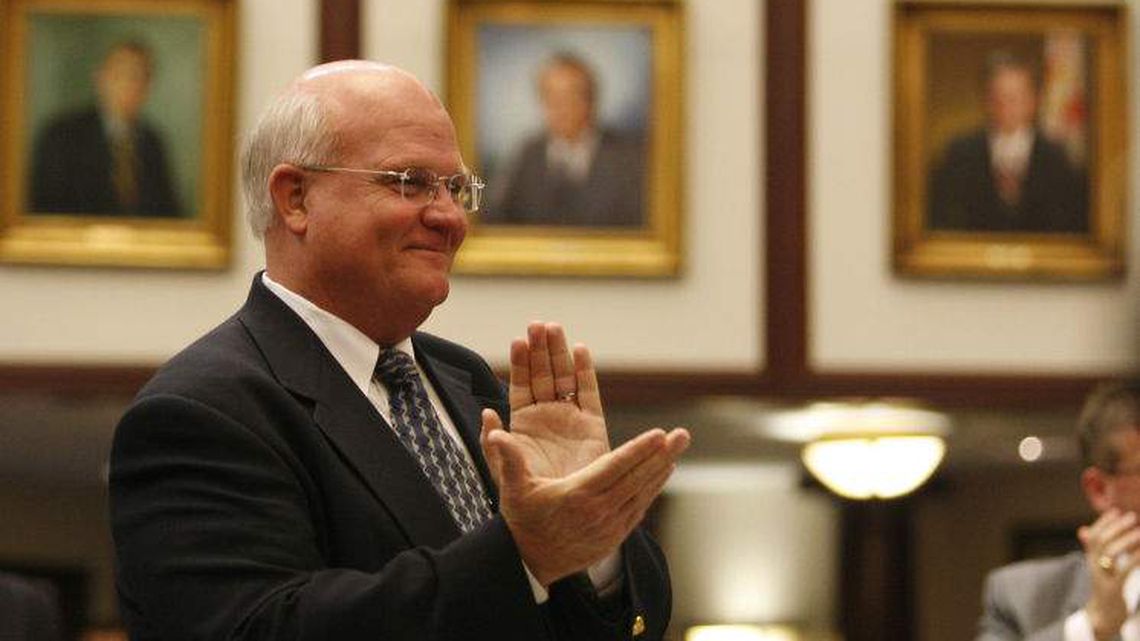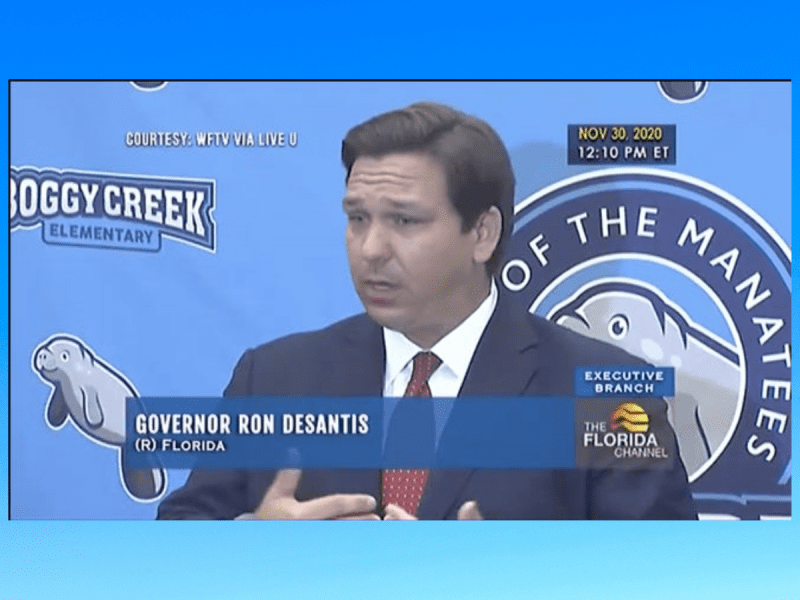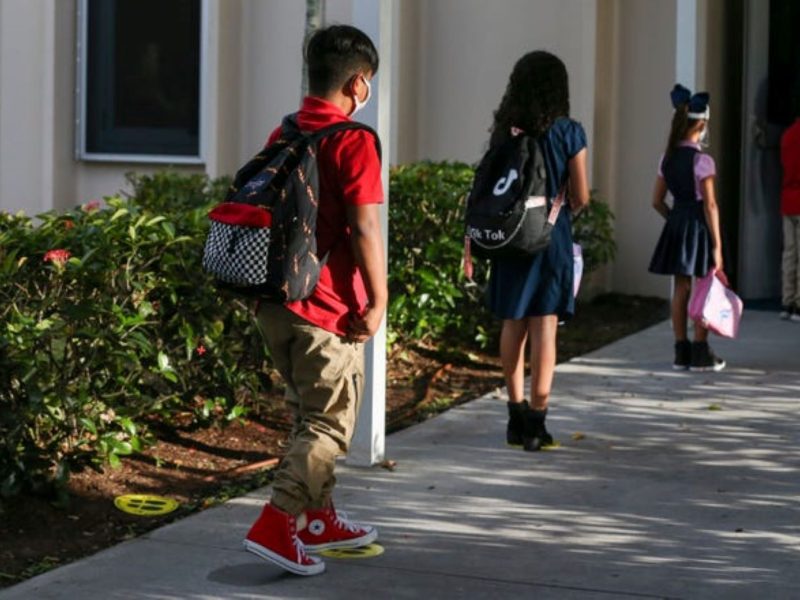Senate GOP advances Bright Futures redesign
Tampa Bay Times | Ana Ceballos & Jeffrey S. Solochek | March 16, 2021
TALLAHASSEE — Following a rewrite and uproar from dozens of students and parents, Senate Republicans on Tuesday advanced legislation that could reduce amounts covered under the state’s popular Bright Futures college scholarship program.
The largely unpopular bill was pulled from the Senate Education Committee agenda a week ago to give its sponsor more time to adjust some of the more contentious items.
Many of the key policy ideas in Senate Bill 86 were left untouched. But a new, longer version now requires state education officials to put together a list of degrees that don’t lead directly to jobs, and that list is tied to Bright Futures scholarship amounts.
Students seeking degrees that are on the list would get smaller scholarship amounts. The goal is to “redesign the program to connect the world of work and the world of education,” said Sen. Dennis Baxley, the sponsor of the bill.
“I am saying have a pathway plan that connects between these two worlds or you are not going to have the full package,” Baxley said.
Baxley, R-Ocala, called Bright Futures — a program that rewards high school graduates based on merit and high academic achievements — an “entitlement program.”
His bill also includes language that would take away scholarship funds for any credits that students earned through Advanced Placement and related programs they took in high school — something the state has encouraged them to do over several years.
“We are not going to pay for that same course again,” said Baxley.
At the same time that Baxley proposes scaling back Bright Futures awards, he also is sponsoring legislation (Senate Bill 1728) that would allow out-of-state students to pay in-state tuition rates at public universities if their grandparents live in Florida.
A big impact
Bright Futures currently benefits roughly 112,000 Florida students. Dozens of those Bright Futures recipients, their parents, university student body presidents and even some college professors filled a room at the Leon County Civic Center on Tuesday to speak against the reworked bill.
Each received 30 seconds to make their case, and most characterized the proposal as one that would make college less affordable and that cast uncertainty on their career paths.
Some Florida high school seniors also expressed concern about a provision in the bill that would take away scholarship funds for college credits earned through Advanced Placement and related programs they took in high school. Baxley said the reduction would only apply if the credit is accepted by the institution and applies to a career program requirement, or to general education courses.
“Why am I being punished for following the advice given to me by the state?” said Grant Stacey, a high school senior from Port Charlotte.
Most of the concerns, however, revolved around students not being able to choose their desired major.
As lawmakers said during debate on the bill, it is impossible for anyone to know which degrees could be impacted, but they expressed their concerns about the idea of doing it.
“It is not our job to penalize them for … majoring in something that the system says does not warrant them a job,” said Senate Education Committee Chairman Shevrin Jones, D-West Park.
Jones also noted that Baxley’s sociology degree from Florida State University didn’t lead him to a job in the field.
“You are a funeral home director and no one told you that this is what you should do and this is the direction you should go in. No, because no one interfered with what God wanted us to do,” Jones said.
Baxley later earned an associate degree in funeral services at Miami-Dade College.
Democrats were not alone in their hesitation over the proposal.
Sen. Jennifer Bradley, a Fleming Island Republican, also was concerned about creating such a list. She voted in favor of the measure but said she believes parents should be the ones having conversations with their kids about their passions and career goals.
“I just disagree with the idea that the state gets to decide that dream,” said Bradley, a mother of three.
Sen. Travis Hutson, R-St. Augustine, raised concerns about people who make up their own majors with the school’s approval, and how they would be impacted. Baxley did not have answers for what would happen under that scenario.
“I agree with the intent that you have,” Hutson told Baxley, “and I hope you will work with the process to get it in a lot better posture.”
In a letter sent to Senate Education Committee members on Monday, Baxley said his hope is that “the research will show that all or most degrees our institutions of higher learning are offering DO lead to jobs.”
“But if there are degrees out there that don’t, I believe we have a moral obligation to let the student know,” he said.
Baxley sent the letter after his bill was suddenly pulled from the committee agenda last week amid growing opposition from student groups.
Other changes in the bill included pushing back the start date of the new scholarship rules one year, until 2023-24.
More data on jobs, student debt
The bill also was altered to require the Board of Governors to develop an online dashboard featuring data on median salary, average student loan debt and debt-to-income ratio for different types of areas of study. Some speakers said the universities already provide this information.
Baxley downplayed that the measure is designed to save the state money as Florida faces budget constraints due to the COVID-19 pandemic. The bill analysis says the impact on state funding starting in 2022-23 is expected to be an indeterminate “net positive to the state budget.”
“I don’t know that we will save a dime,” Baxley told senators on Tuesday. “We are not projecting how much more or how much less will be spent; we are redesigning the program to connect the world of work and the world of education.”
The program, which distributed $618 million in scholarships in the 2019-20 fiscal year, is funded by the Florida Lottery. The Legislature sold the lottery on the promise it would go to education, and Bright Futures was created to spend that money.
The Legislature has tinkered with Bright Futures many times before. Changes have been big and small, and stretch back decades — and some tweaks have been recycled over the years.
For instance, giving full Bright Futures scholarships only to students who get into professions in which there are shortages is not a new concept. Two decades ago, former Florida House Speaker Tom Feeney said it would be a good idea to do so to fill teaching and nursing jobs.
Baxley also is proposing language that, if approved, would no longer guarantee Bright Futures awards would cover 75 percent or 100 percent of students’ tuition and fees. Instead, the award amount would be set in the state budget.
The exact same language was approved by lawmakers in 2012, a few years after the Great Recession. Then, in 2018, the Legislature restored the top- and second-level awards to once again cover what is currently in state law.
The fate of the measure remains murky — and not just because of the backlash. The House has no companion bills, and education leaders in the chamber are not focused on the issue.
“I haven’t been working on anything related to Bright Futures,” House Education and Employment Committee Chairman Chris Latvala said in an interview.”It’s not anything I’m really focused on.”





